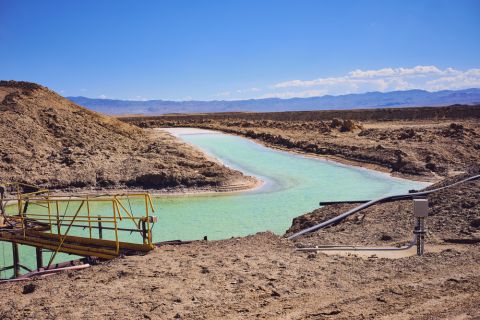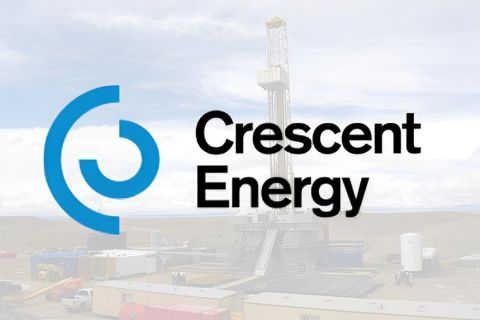This year there are a number of anniversaries worth noting. One is the 70th anniversary of the formation of Saudi Aramco and the other is the 30th of the first Arab oil embargo. Saudi Arabia's oil industry is hardly diminished, yet it faces several new challenges. The U.S. is still vulnerable to oil supply shocks. The embargo, which lasted until March 1974, was a big jolt to the American way of life. U.S. producers could not overcome oil and gasoline shortages. Consumers were forced to line up on alternate days, sometimes for hours, just to get a meager supply of gasoline whose price was soaring. Thirty years later, we still do not agree on what our national energy policy should be. Congress is trying yet again to formulate an official policy that meets the needs of many opposing constituents. At press time, members of the House-Senate conference committee were haggling over the proposed energy bill. President Bush again said he wants to sign a final version before the Christmas break. To be sure, crude oil-its sources, its price, its allocation to users, its political importance-has been a central point of worry and argument for the world's great powers, here and abroad, ever since it was first produced in great quantity about 100 years ago. What is the status of the anniversary countries today? Aramco, originally known as the California-Arabian Standard Oil Co., was jointly owned by the predecessors of what is now ChevronTexaco. From 1933, it held the Saudi oil concession and was responsible for helping the government develop its fields and market and transport oil production to the world. Later, Exxon and Mobil joined the group. Saudi Arabia nationalized the assets of Aramco in 1976, gaining 100% interest in oil production, but Aramco operates the Saudi oil industry for the government. And what of the United States? In 1971, our oil production peaked at 11.3 million barrels per day. Now it is less than 6 million per day. Crude oil imports in 1973 were 6.2 million barrels per day or 36% of total consumption. Today we import more than 55% of total consumption. Now, as then, oil and Middle Eastern politics are intertwined. The first Arab oil embargo, instituted in October1973, came about in response to Egypt's and Syria's surprise attack on Israel, the so-called Yom Kippur War. OPEC used oil as a weapon against the West, hoping the U.S. would pressure Israel. The embargo ended in March 1974 after much negotiation-and after wreaking havoc with the economies of the U.S., Europe and Japan. Today America is no more independent than people had hoped it could be 50 years ago. The New York Times in 1948 said the U.S. needed to free itself of dependence on foreign sources of oil, according to The Prize by Daniel Yergin. In response to the embargo, some senators, governors, utilities and oil companies founded the Alliance to Save Energy. The Department of Energy was formed. Congress created the first fuel efficiency standards for cars-a concept that still provokes a lot of controversy and threatened to sabotage this year's energy bill. Transportation now accounts for 60% of our oil consumption, with no economic and widespread alternatives in sight. Watch the tug of war between supply and demand continue. OPEC's production quota cut, which took effect November 1, means it is defending the price of oil as its market share continues to fall. Its share of global demand has been falling steadily since the 1970s as non-OPEC supplies have increased. It was 40.7% in 1998 but is estimated to be 37% in 2004. World oil demand is expected to grow by 1 million barrels a day this year and next, and by another 1.5 million in 2005. "The call on OPEC should average about 23 million barrels a day in 2004, the lowest level since 1991," says a report from Prudential Financial analyst Michael Mayer. Meanwhile, non-OPEC production is growing by 1- to 1.5 million barrels a year. "It will become increasingly difficult for OPEC to cede market share to non-OPEC countries, particularly Russia, as its capacity utilization declines." OPEC remains challenged, and so do we. As U.S. producers continue to find ways to increase their production, profits and efficiency, let's learn from them and honor their successes. That's why we are seeking your nominations for the Oil and Gas Investor Excellence Awards. Please take part by sending your nominations to us soon. Winners will be announced in our February issue and presentations are scheduled at NAPE that same month. But hurry-we need to hear from you by December 1. The categories are: Best Corporate Citizen, Best Field Discovery, Best Field Rejuvenation, Best IR Program, Financing of the Year, M&A Deal of the Year and Executive of the Year. More details are found elsewhere in this issue and at our website, oilandgasinvestor.com.
Recommended Reading
Kimmeridge Fast Forwards on SilverBow with Takeover Bid
2024-03-13 - Investment firm Kimmeridge Energy Management, which first asked for additional SilverBow Resources board seats, has followed up with a buyout offer. A deal would make a nearly 1 Bcfe/d Eagle Ford pureplay.
M4E Lithium Closes Funding for Brazilian Lithium Exploration
2024-03-15 - M4E’s financing package includes an equity investment, a royalty purchase and an option for a strategic offtake agreement.
Laredo Oil Subsidiary, Erehwon Enter Into Drilling Agreement with Texakoma
2024-03-14 - The agreement with Lustre Oil and Erehwon Oil & Gas would allow Texakoma to participate in the development of 7,375 net acres of mineral rights in Valley County, Montana.
California Resources Corp. Nominates Christian Kendall to Board of Directors
2024-03-21 - California Resources Corp. has nominated Christian Kendall, former president and CEO of Denbury, to serve on its board.
Uinta Basin: 50% More Oil for Twice the Proppant
2024-03-06 - The higher-intensity completions are costing an average of 35% fewer dollars spent per barrel of oil equivalent of output, Crescent Energy told investors and analysts on March 5.





